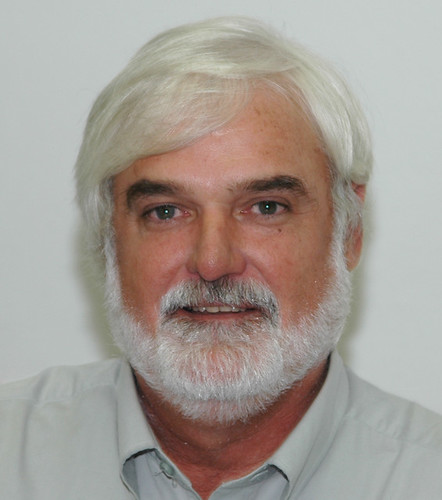ILRI’s director general and new representative for Southern Africa visit the region to consult with partner organizations and get an update on work of the NEPAD and its establishment of regional African biosciences centres of excellence.
ILRI’s director general, Carlos Seré, and new representative for Southern Africa, Siboniso Moyo, visited Botswana, Mozambique, South Africa and Zimbabwe in early March 2006 to meet development partners in the region, including public- and private-sector organizations, non-governmental organizations, the secretariats of the Southern African Development Community (SADC) and the New Partnership for Africa’s Development (NEPAD), and regional offices of other centres of the Consultative Group on International Agricultural Research (CGIAR), to which ILRI belongs.
ILRI’s new representative in Southern Africa, Siboniso Moyo, called ‘Boni’, joined ILRI in February 2006. She will be based in Maputo, Mozambique. She is an animal scientist graduate of the University of Pretoria and has spent the last 21 years doing livestock research in Zimbabwe and the region.
On their mission, Moyo and ILRI Director General Seré met with John Mugabe, Executive Secretary of NEPAD’s Science and Technology Forum, and Aggrey Ambali, Coordinator of NEPAD’s African Biosciences Initiative, in Pretoria, South Africa. NEPAD’s African Biosciences Initiative, conducted under the NEPAD Science and Technology Programme, is establishing regional networks of centres of excellence comprising hubs and nodes.
Describing the purpose of their mission, Carlos Seré explained that ILRI plans to engage actively in the region’s science and technology agenda for agricultural research. He updated his NEPAD colleagues on the first NEPAD-initiated biosciences centre of excellence to be established, known as Biosciences eastern and central Africa (BecA) and based at ILRI’s laboratories, in Nairobi, Kenya. BecA’s new Network Director, Bruno Kubata, has been on the ground for 100 days, Seré reported, and is working to finalize the BecA implementation plan, with the view to implementing the Network’s research agenda at the BecA hub and nodes from mid-2006.
NEPAD’s John Mugabe said ILRI’s presence in the southern Africa region is welcome. He reported that all the NEPAD-initiated biosciences hubs, and their accompanying networks, are now in place. Besides BecA, based at ILRI’s headquarters in Nairobi, Kenya, and encompassing biosciences nodes throughout eastern and central Africa, there are now three others established: one in Alexandria, Egypt for North Africa, a second in Dakar, Senegal, for West Africa, and a third based at the Council for Scientific and Industrial Research (CSIR), in Pretoria, South Africa, for southern Africa. Mugabe said staff at all four hubs of these biosciences centres of excellence now need to develop links with each other and to exchange information.
The ILRI team also met with NEPAD’s Agricultural Advisor, Richard Mkandawire. ILRI’s Seré explained that a series of regional consultations were in progress in regard to the Comprehensive Africa Agriculture Development Programme (CAADP). The main goal of CAADP, NEPAD’s Mkandawire explained, is to help African countries reach a higher level of economic growth through agriculturally led development that eliminates hunger, reduces poverty and food insecurity, and enables expansion of exports. A road map for achieving this has been developed by the NEPAD Secretariat to coordinate and facilitate the transition from framework to country-level implementation of the CAADP Agenda. The country-level implementation process seeks to align national agricultural sector policies, strategies and investment programmes with CAADP principles, facilitate better partnerships and alliances, facilitate reliable tracking of the level and efficiency of public-sector investments (target-10%) and growth rate (target-6%) of the sector. It is important, Mkandawire said, that the livestock agenda is tabled during the country round table discussions. CAADP’s technical arm is the Forum for Agricultural Research in Africa (FARA), an umbrella organization bringing together stakeholders in agricultural research and development in Africa with a secretariat in Accra, Ghana.



